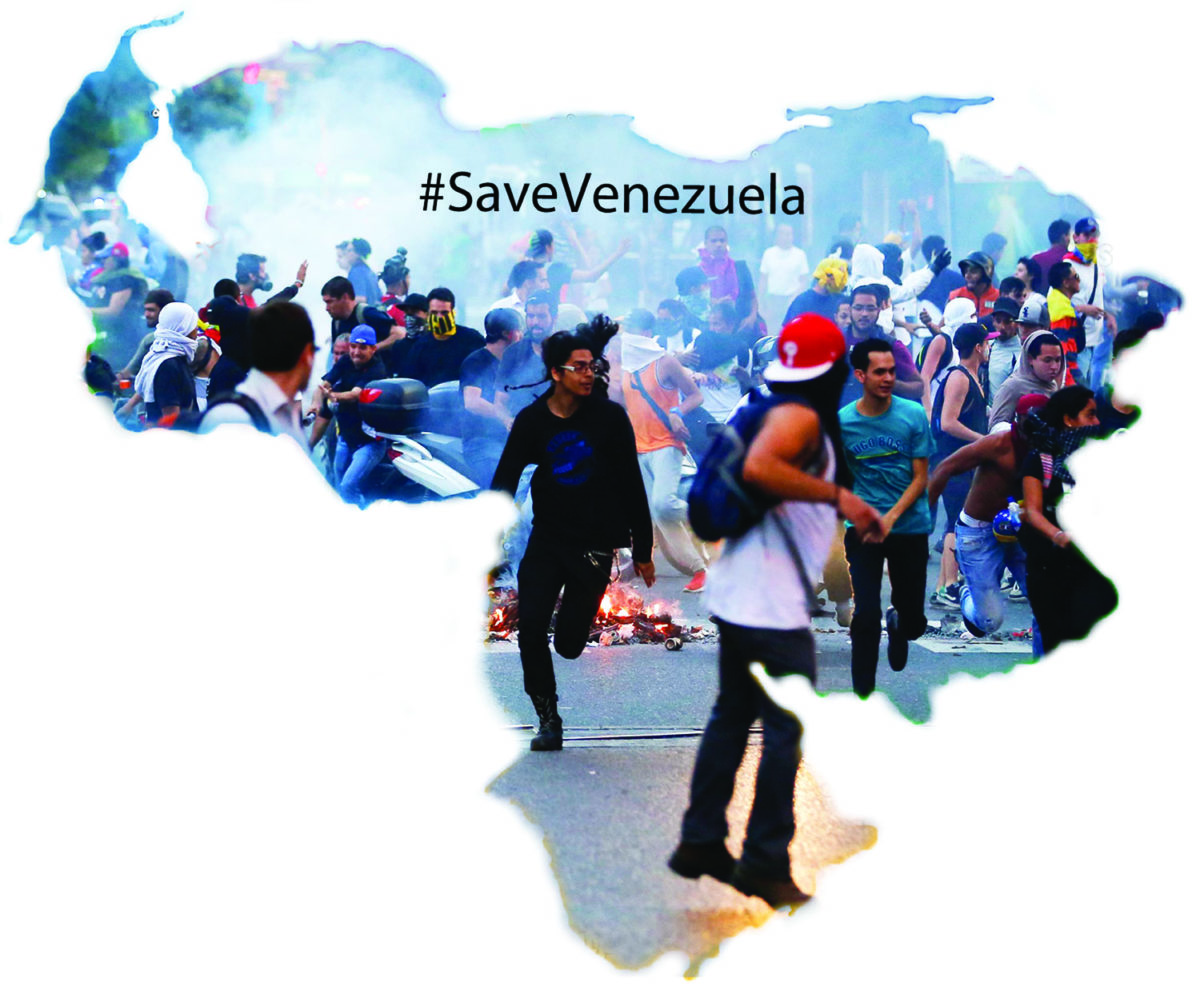
Protestors continue to clash with authorities in Venezuela after almost two weeks of demonstrations both against and in support of President Nicolas Maduro’s government.
The anti-government movement is protesting longstanding economic and social policies, which they believe led to shortages of basic necessities for Venezuelans.
“Especially this year, there are always long lines just to go to the supermarket, and then when you get there sometimes there’s no milk, there’s no meat,” said Sara Perez. The second-year journalism student at St. Thomas transferred this year from a university in Caracas.
“We went almost two months without toilet paper once. Right now there are protests with journalists because there is not enough newspaper to print on,” she said.
As of Saturday, six protestors have been reported killed in sporadic bouts of violence, with no one claiming responsibility.
Perez’s parents and sisters moved out of Venezuela years ago, but a few cousins who remain have been protesting. The military is stationed in protest hot spots with tanks and paramilitary support. Perez’s family say soldiers have been patrolling the streets at night.
Opposition figurehead Leopoldo Lopez handed himself over to state authorities last week, amidst charges of murder, terrorism, arson and conspiracy. The charges of murder and terrorism were soon dropped.
Though never convicted, he is barred from running in Venezuelan elections due to allegations of corruption that came before the 2008 election.
“He is one of the key opposition political figures. He was a front-runner in presidential elections,” said Lesley Burns, a Venezuela expert in Ottawa. “The judicial system is not free and fair and it’s very politicized, so many people believe that the allegations against him were political more than factual.”
Burns has a PhD in the rule of law and democratic civility and her doctoral research focused on Venezuela.
She said the country’s economic woes are mostly due to policies such as the fixed exchange rate, which forces businesses and citizens to apply through the government to exchange currency, a necessity to import goods.
Inflation in 2013 was a staggering 56 per cent, and while labour unions exist in the socialist-leaning democracy, there is nothing they can do to match inflation with wage increases. The money just isn’t there.
This dollar discrepancy has created a black market for international currency and goods. People will pay up to ten times the going rate for U.S. dollars.
“If you want something like a new cellphone, it would work out to be thousands of dollars. Hardly anyone can afford things like that,” said Perez.
Venezuelans often spend large sums of money on consumer goods for themselves and others when they leave for another country, she said. Getting a phone from the U.S. is often easier than buying that same phone at home.
Bringing those kinds of luxuries to the everyday Venezuelan would do a lot to end decades of turmoil. Providing basic necessities would likely end the violence, but Burns says they are a long way off.
“The opposition in Venezuela really sees the rules of the game as being written and changed by the government in power, and they’re seeing less and less of an avenue for them to work within the existing institutional system,” said Burns. “So I don’t think we’re going to wake up tomorrow with a solution. I think there needs to be a real institutional change.”
Perez doesn’t know how or when her homeland’s turmoil will end, but she’s staying positive.
“I had never seen so many people aware of the problem and posting so many things on the Internet … That’s important because it means that people are starting to listen what is happening in our country.”
